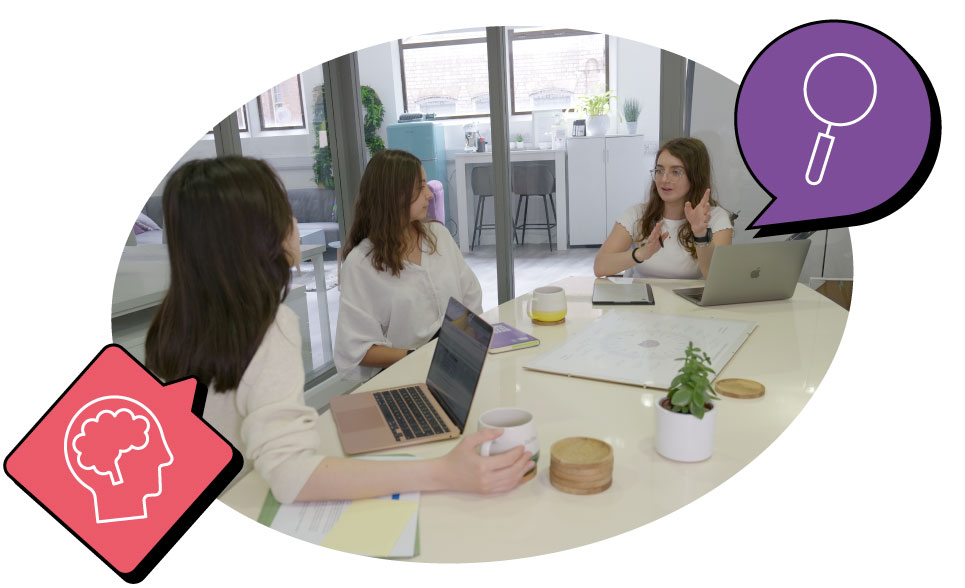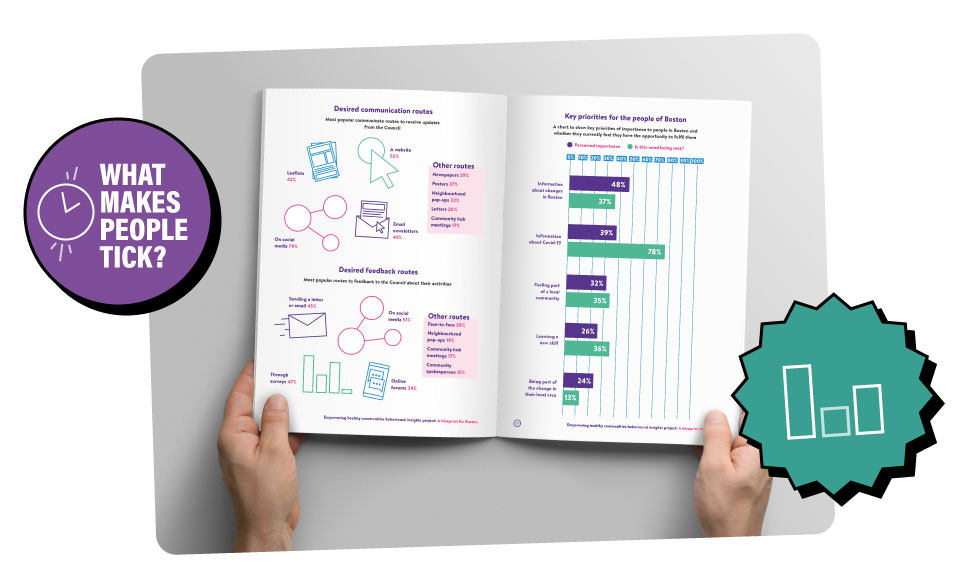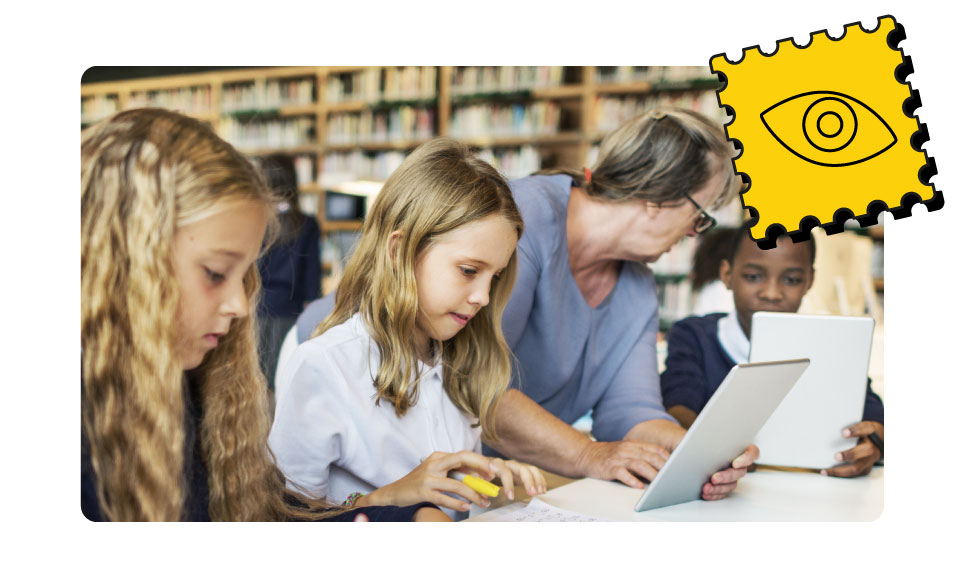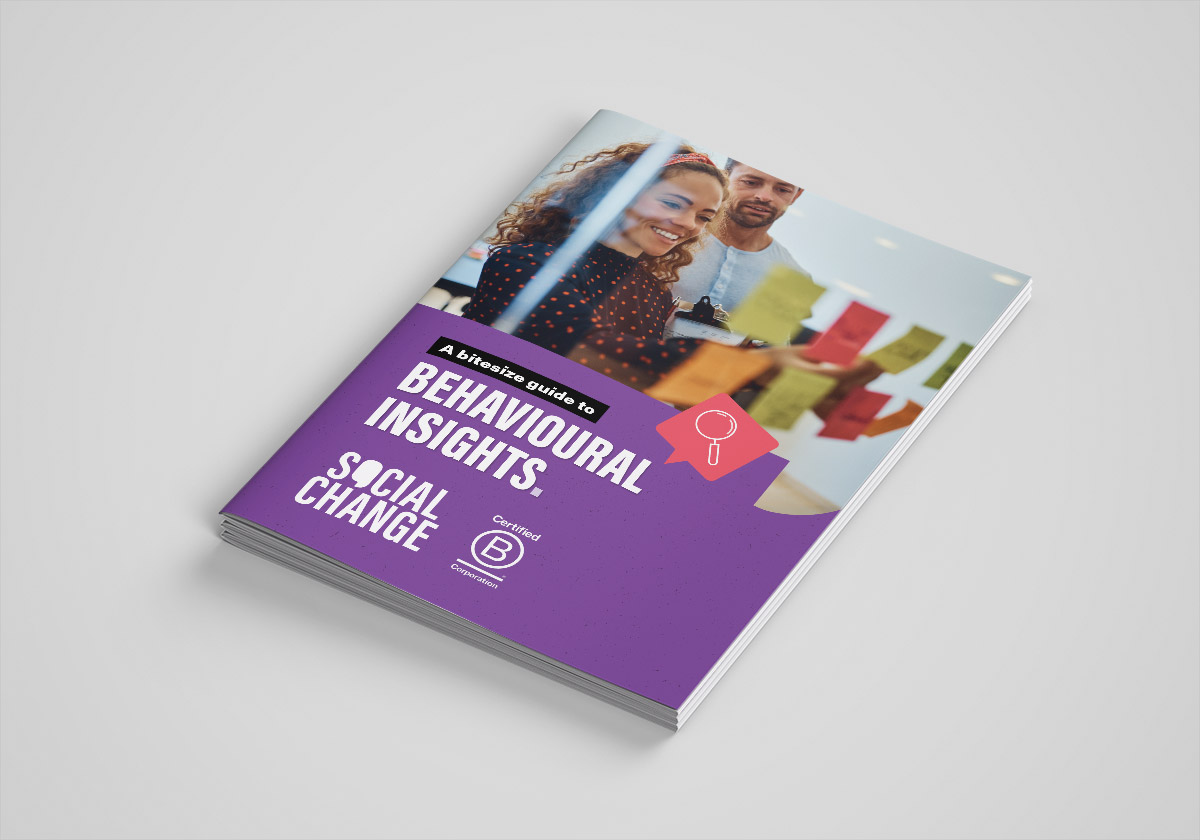
Understanding people
Our behavioural insights team specialise in people and society - examining attitudes, motivations, behaviours, beliefs and values. We don’t just focus on what people do, but why they do it and how we can influence them.
We can help you:
- Research audience perceptions and behaviours
- Understand consumer habits
- Align messages to mindsets
- Find out what your audience thinks and feels

Behavioural science
We design, develop, pilot, deliver and evaluate behaviour change programmes using a robust set of tried and tested tools and methods. Behavioural science and the principle of understanding people is central to our work - we turn to established frameworks and models, including ‘The Behaviour Change Wheel’, the COM-B model, MINDSPACE and EAST, to aid our exploration of people and why they do what they do.
We don't just give you the science - we give you the solutions.

Professional people watchers
Our team is staffed by psychologists, behavioural scientists, historians, data analysts and enthusiasts. Over the last decade, we have conducted some really interesting research on all sorts of issues, such as:
- Obesity
- Alcohol consumption
- Climate change
- Child sexual exploitation
- Knife crime and police visibility
- Smoking and vaping
- Drug misuse
We are known for researching these tough social issues and turning behavioural insights into actions.

Types of research
We have a library of research methods that we use to uncover relevant and valuable behavioural insights.
Our quantitative [surveys, polls] and qualitative research [focus groups, telephone interviews] approaches provide robust, measurable insights, while ethnographic research [participant observation] allows us to delve deeply into real-world behaviours and contexts.
We work with a diverse range of people, of all ages, and have extensive experience working with children and young people.
Talk to us about:
-
Behavioural insights
-
Behavioural science
-
Quantitative research
-
Qualitative research
-
Ethnographic research
-
Research with children
-
Segmentation
-
Randomised control trials (RCTs)
-
Feasibility studies
-
Data analysis (qualitative and quantitative)
-
Rapid evidence assessment/ deep dive
-
Needs assessment
-
User experience & user testing (UX/UI)
-
Customer and user experience journey mapping


